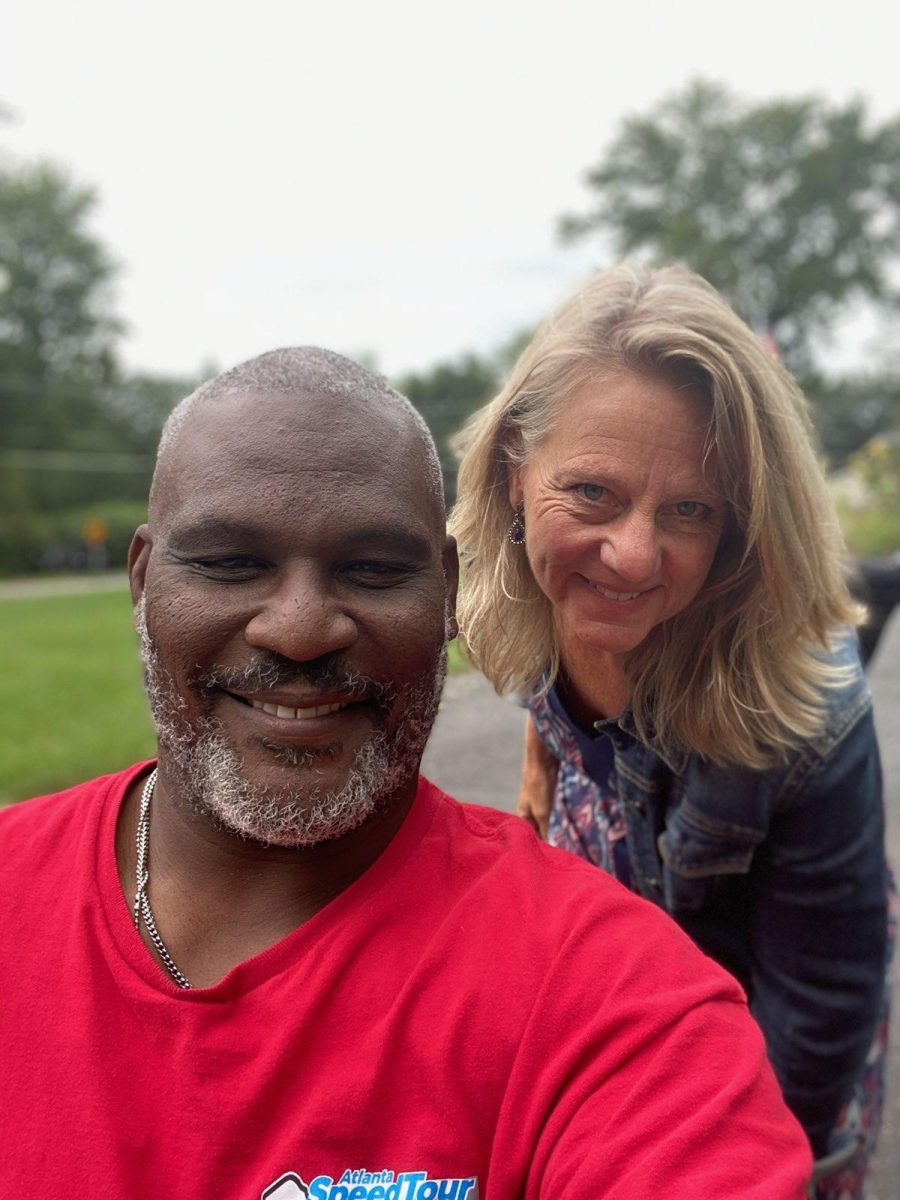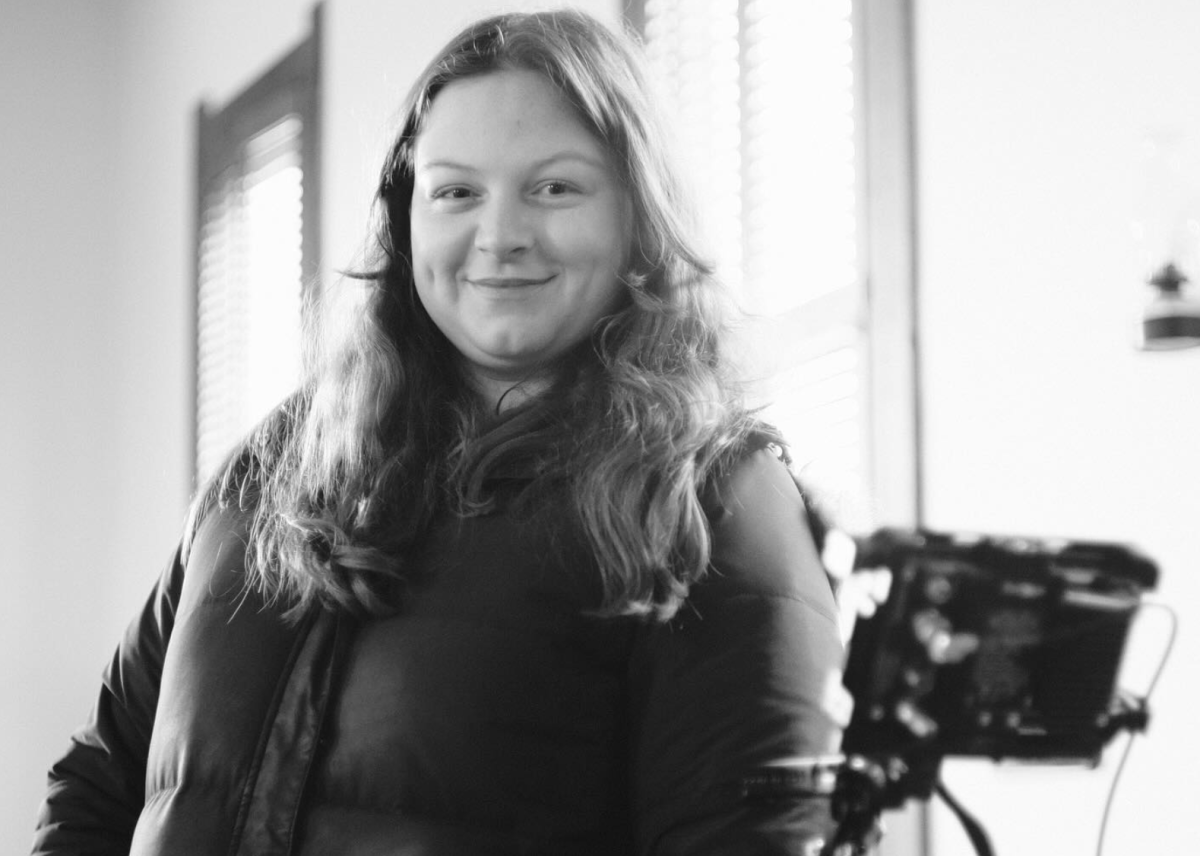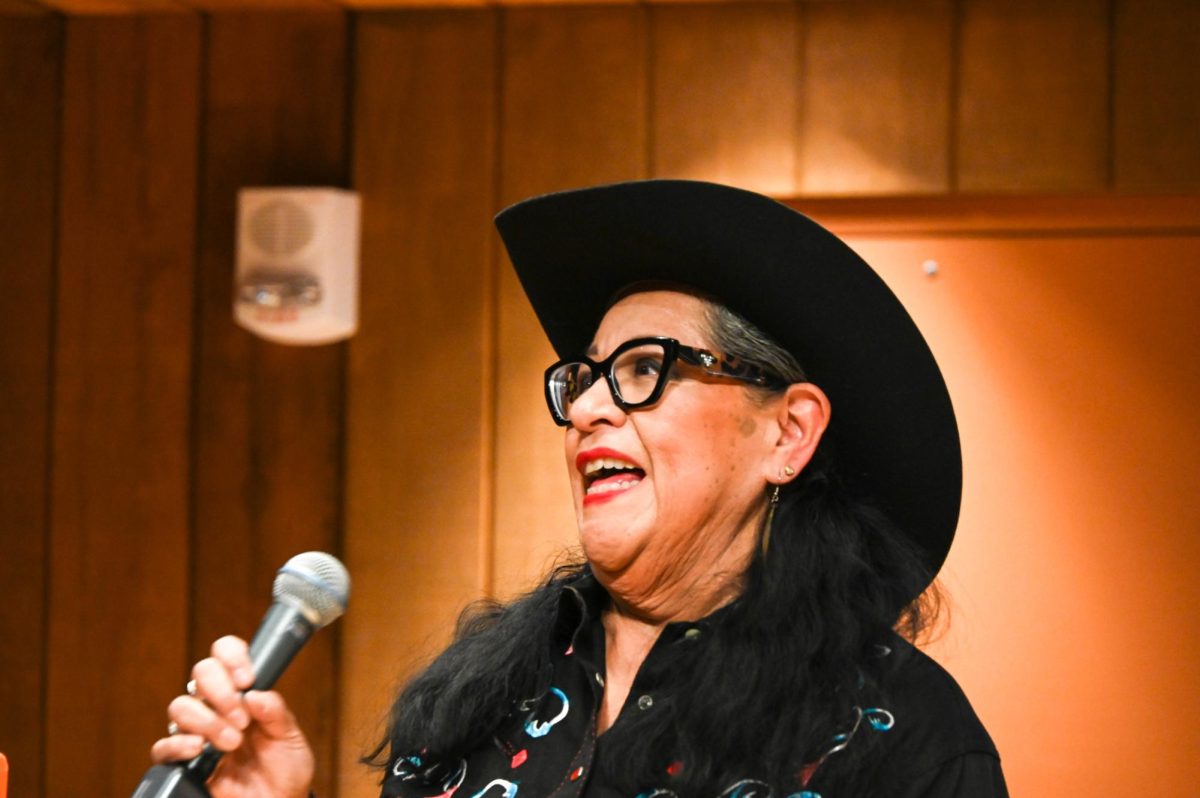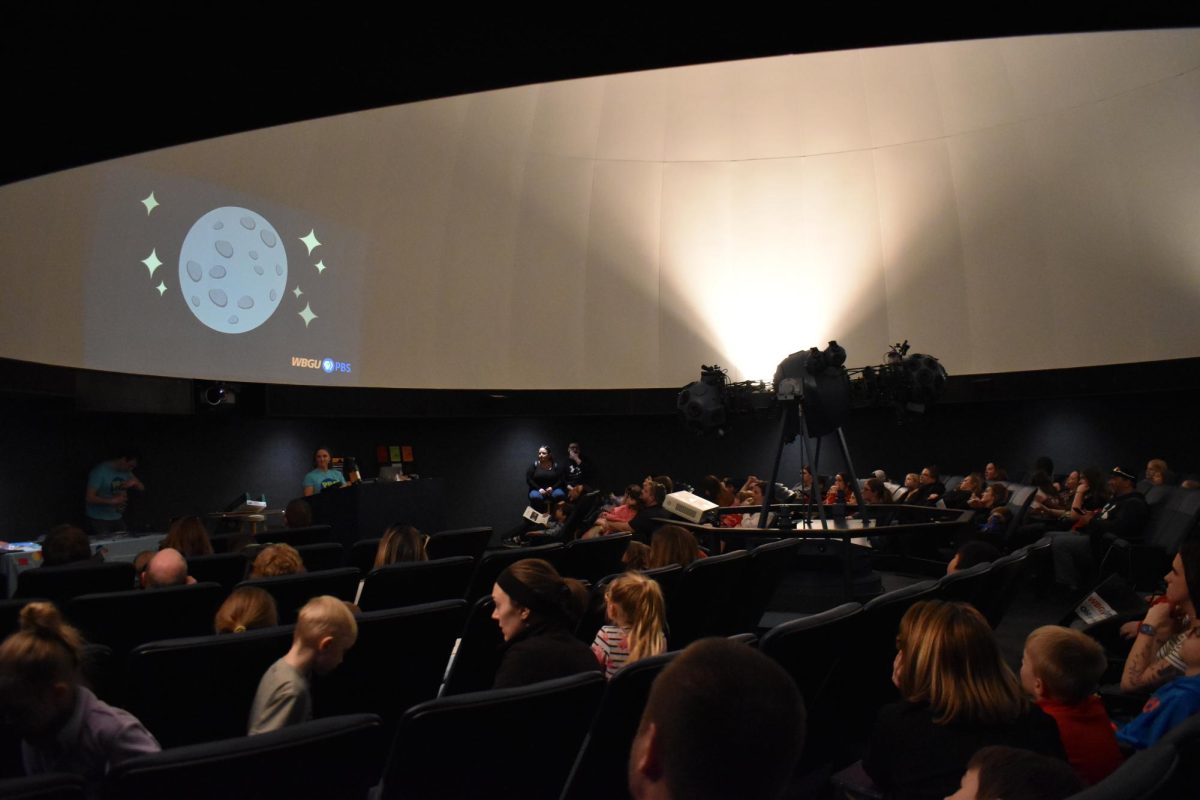When Col. Greg Gadson took his first steps on new leg prosthetics, the last thing he expected was to stumble – and in front of a stranger with a camera, no less.
Gadson, a decorated United States Army veteran and battalion commander, served for more than 26 years, facing his greatest challenge in May 2007. An Improvised Explosive Device (IED) exploded near Gadson in Iraq, costing him both of his legs.
Terese Schlachter, video producer, journalist, BGSU alum and author, visited Walter Reed Army Medical Center as part of an assignment, where Gadson was learning to use his new prosthetics.
“He wiped out right in front of me,” Schlachter said. “He looked up at me, and I’m standing over with the camera man who’s rolling… and he says, ‘Are you going to use that?’”
Schlachter told him yes, she would be using the footage. He got his feet under him after the stumble, got back up and tried again.
She said to him, “Well, that’s the whole point, right? People see you fall but then they see you get back up and try it again.”
It didn’t end with the camera; Gadson likely never expected that the woman with the cameraman would earn his trust, but she did.
When Schlachter went back to the rehab center at a later date, she saw Gadson again, and she said this was the beginning of their friendship.
“I think the relationship has evolved now to siblings,” she said. “We’ll kind of argue sometimes about things and give each other a hard time.”
Schlachter wanted to write a book for some time, and after hearing the experiences of Gadson, knew this was the perfect opportunity.
“You really have to earn a person’s trust kind of immediately. With Greg, it was over time,” Schlachter said.
This encounter marked the beginning of a 16-year project they embarked on together.
She said it was not an everyday project, and she fit writing into her already busy life. Schlachter had a full-time job and responsibilities on the side. Because of this, some of her writing sessions looked like 3 a.m. on her living room couch.
“I always knew I wanted to focus more on the writing,” she said. “I had to keep money coming in. I couldn’t make the jump.”
Schlachter had to persuade Gadson to move forward with the project.
“I had to talk him into it,” she said. “He has a certain amount of humility and just didn’t really think there should be a book out there about him.”
When Terese had some of the book written, she felt as if it wasn’t completely done yet. She went back to school to get her master’s degree in fine arts, which helped complete the process.
Long after the book, “Finding Waypoints: A Warrior’s Journey Toward Peace and Purpose,” was written, it was still too emotional for Gadson to read.
“During COVID, when he couldn’t travel as much, two or three mornings a week we’d get on Zoom and I would read it to him,” she said.
Gadson had experienced a trauma most people will not experience in their lifetime, yet Schlachter did not want to leave Gadson in the dark.
“I remember I was looking down reading and I looked up at the screen, and his head was just down on the desk sobbing,” she said.
Schlachter explained some events were new to Gadson; it was his first time hearing the full story. After the incident, he was unconscious for four to five days.
“When you’re a journalist, there aren’t that many happy stories,” she said.
While the stories themselves tend to be sad, the outcome, friendships and hindsight can be optimistic.
Schlachter and Gadson will be speaking about the book at Bowling Green State University on Nov. 14 at 6 p.m. It is free, open to the public and will be in the Schmeltz Atrium of the Maurer Center.




















